Introduction to Interviewing: The Art of Conversation
Course final project
A course by Elvira Liceaga , Broadcast Journalist and Writer
About the final project for: Introduction to Interviewing: The Art of Conversation
Introduction to Interviewing: The Art of Conversation
“ Thank you very much for taking this course. I hope that the research and preparation process, taking the conversation route, turning topics into questions, and the tips for doing a live interview are useful for the type of program you want to do, and I also hope that this It will help you organize your ideas and thoughts. I believe that the art of conversation serves us both in a café chatting with a friend and on the stage of a cultural festival. And I also think it helps us to talk to ourselves. MY FINAL TIPS Do whatever you have to do to feel free in that interview space, as long as you respect the person you're interviewing, even if it's someone you disagree with. Also respect the team involved in conducting the interview. What I need to feel free to ask the questions I want to ask is to know that I am prepared. Trust the process. Trust that you have been thinking and rethinking the topics you are going to talk about. Trust that your questions are just as valid as other people's questions. Probably many of your questions coincide with those of others. Sometimes we think that we are different in a negative way and the truth is that we are probably not that different. And if we are, it's probably in a positive way. Don't be ashamed, be different. Go further. Listen to what other interviewers are doing and strive to ask other questions, your own questions, that will evolve over time into your own style. And the public will identify with your style. Not everyone in the audience is going to love you, there will always be someone who thinks you're an idiot, and that's fine, but there will also always be someone who, when they hear the question you asked, will think "it's good that he asked that, I love him too to know". Remember that you want to be there. That is the space you have worked so hard for. Be proud of your nerves. Make a fool of yourself, show that you are human. Also show that you can do this, I assure you that it will be easier and more challenging. This is important because you will always be able to grow in this. It is an open field of exploitation and growth, and that, for me, is very important. The possibility of making a trade, of making a career, developing skills and always having to learn. YOUR PROJECT For your final project, look for a person with whom you have the confidence to be wrong, but who makes you a little nervous. Maybe it's not the person that makes you nervous, but the subject. Make your final project challenging, that you really have to think about what questions to ask and how you're going to lead that conversation. Put some pressure on yourself to get it right, maybe you can invite an audience for that. Before we say goodbye, let's review the key phases of the project. It would be great if you briefly explain what you have done in each one and accompany the explanation with one or more images. Remember to do a final project different from this course. Start from scratch, it will be much more interesting. since every interview is a personal project. Your protagonist Choose your interviewee or interviewee and decide why you want to talk to her. You will also have to decide what the format, sound or audiovisual, of your interview will be.
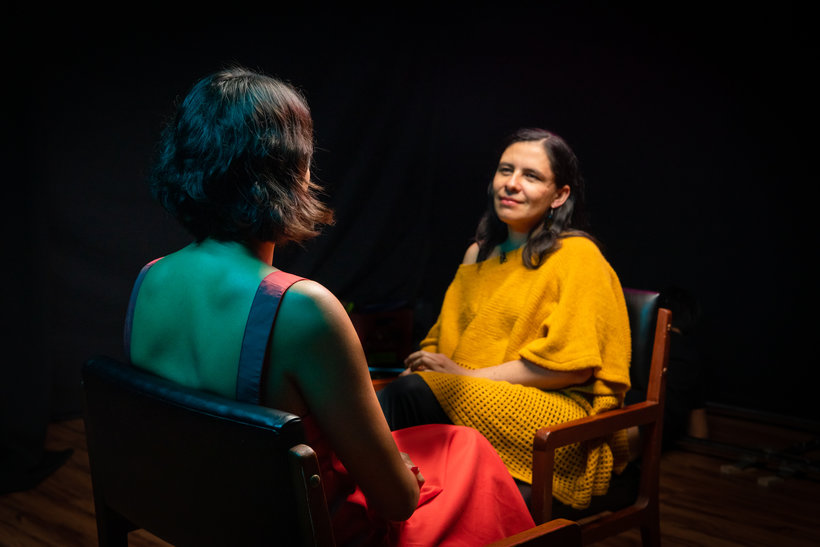
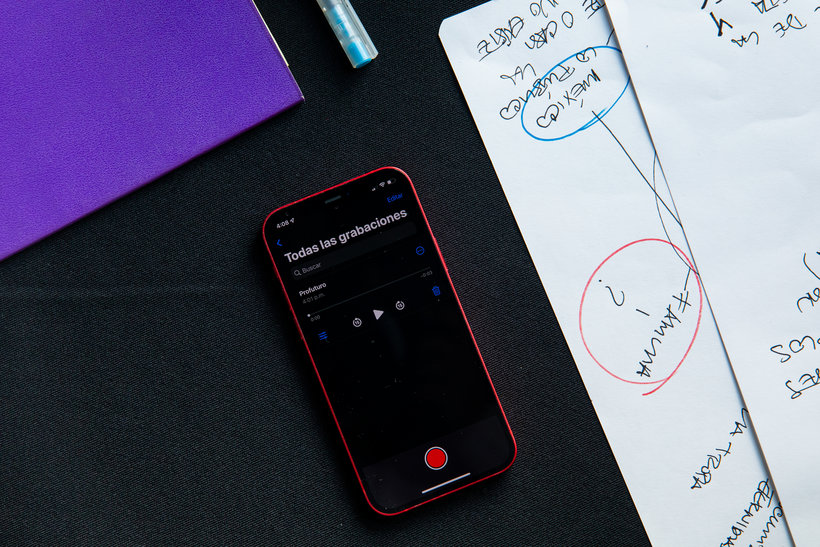
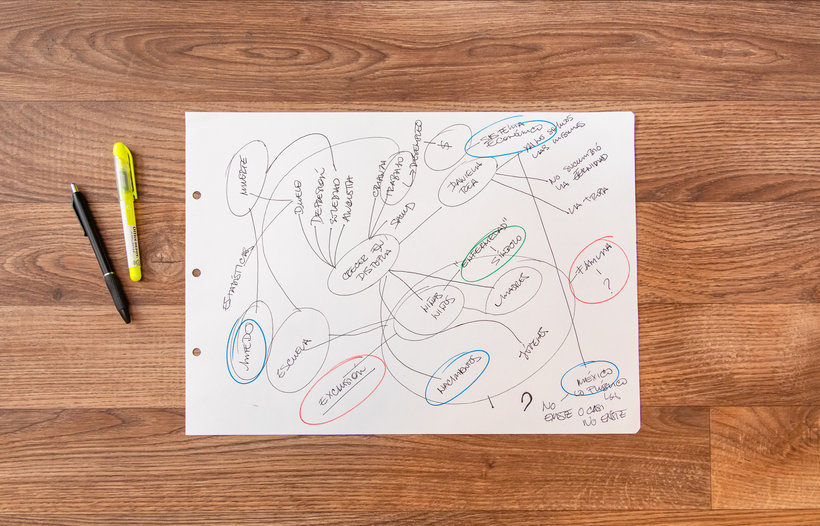
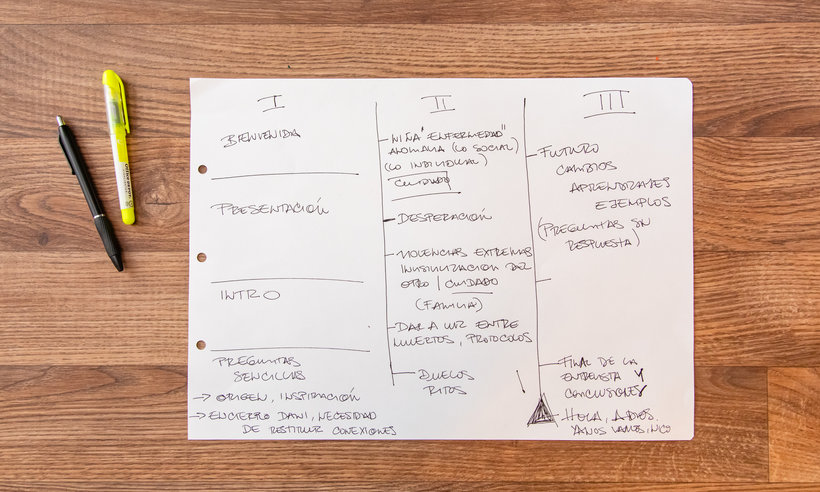
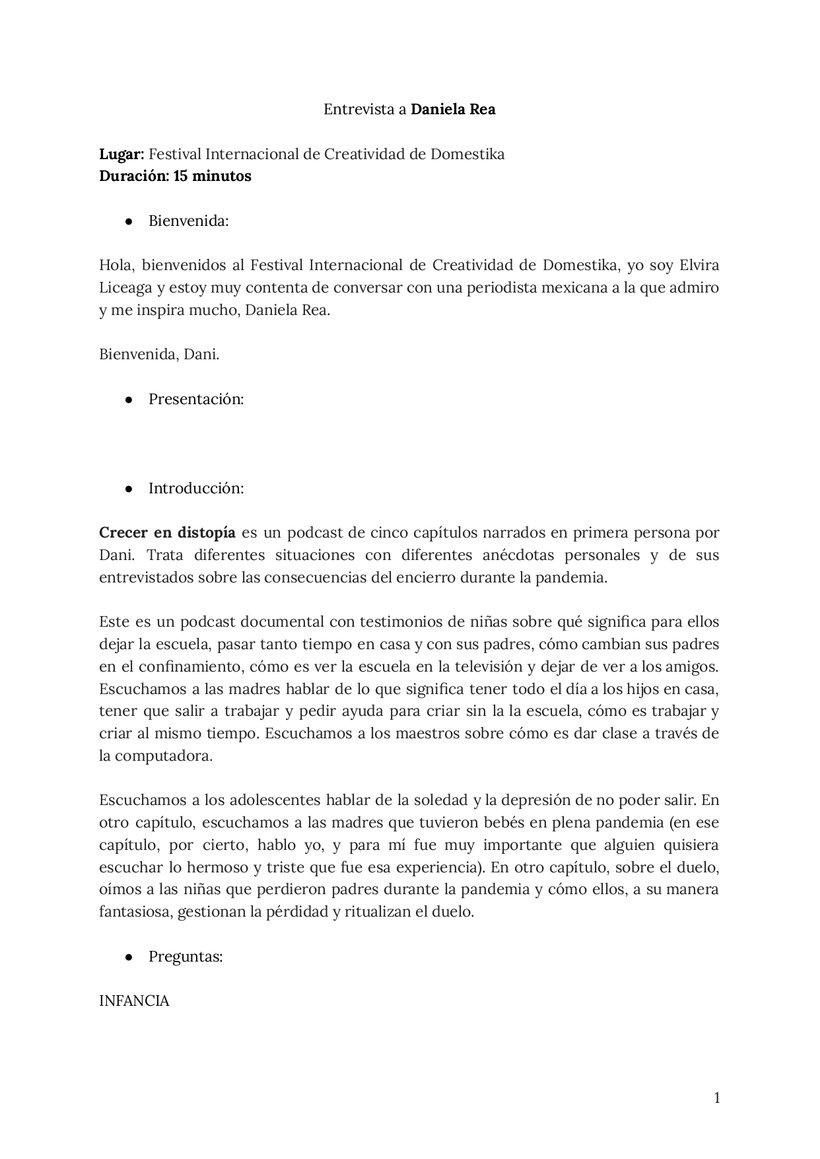
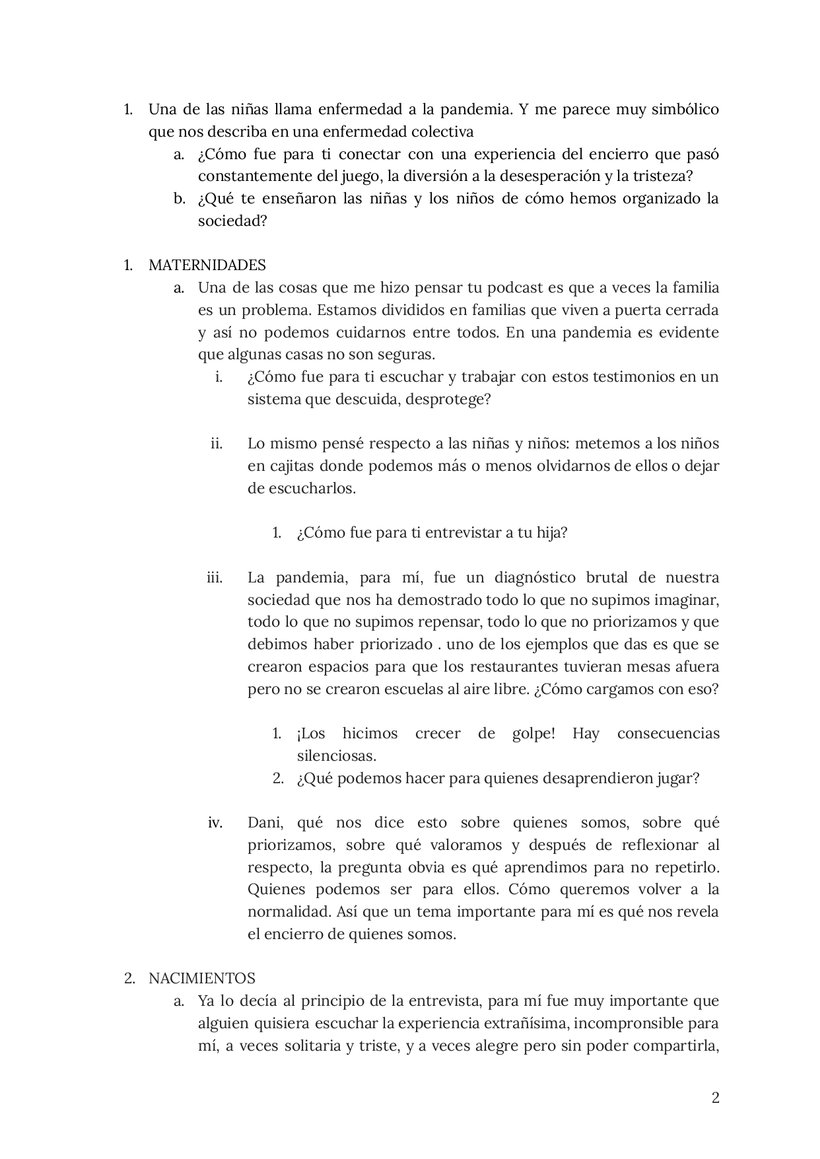
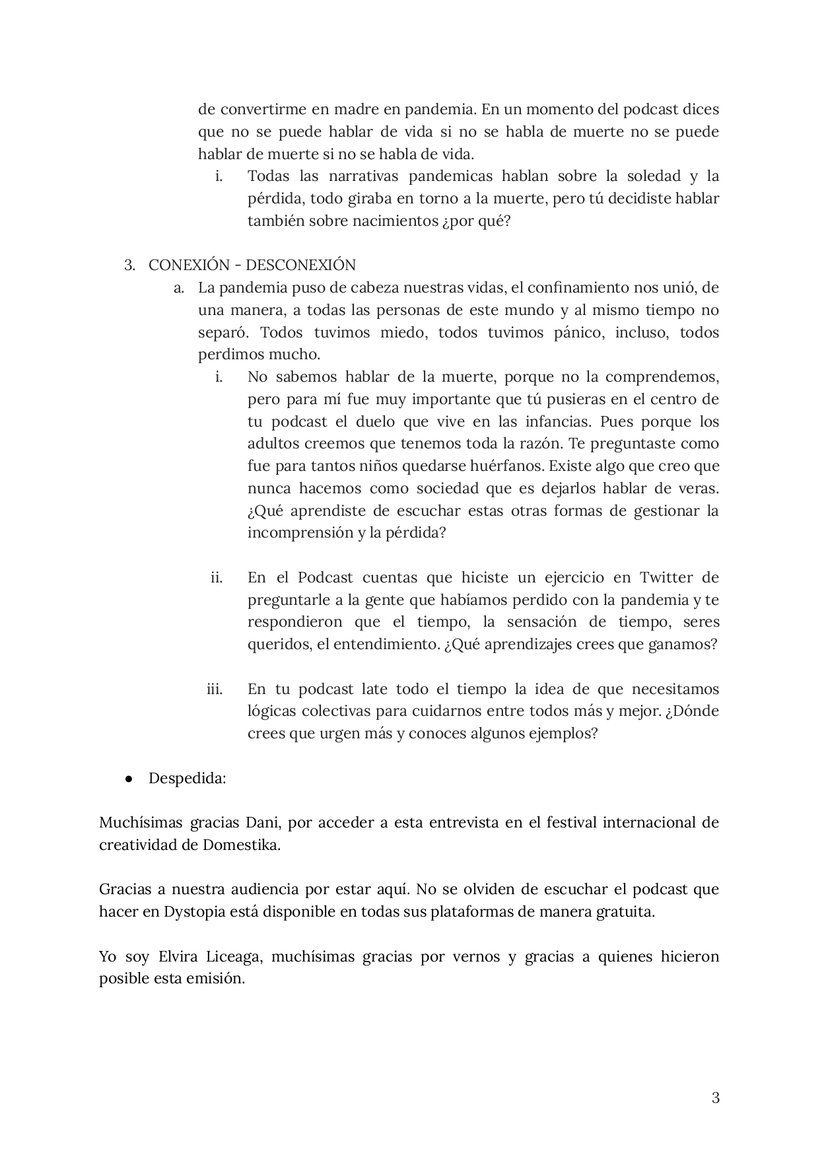
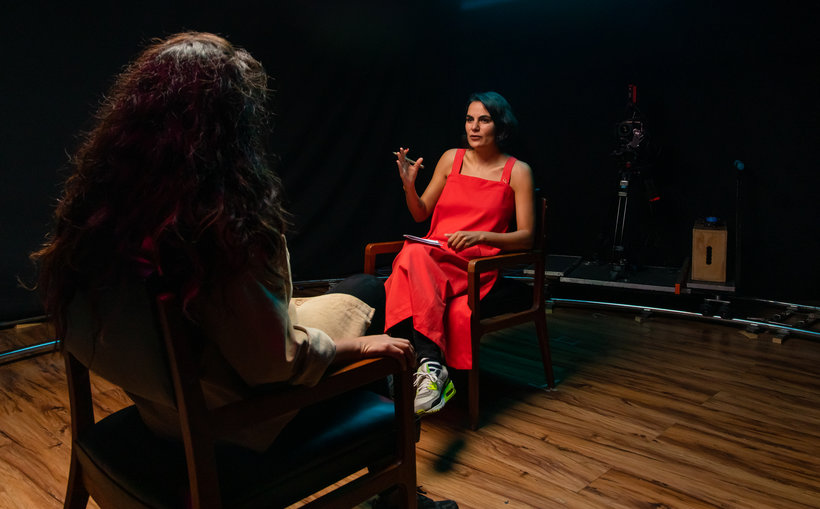
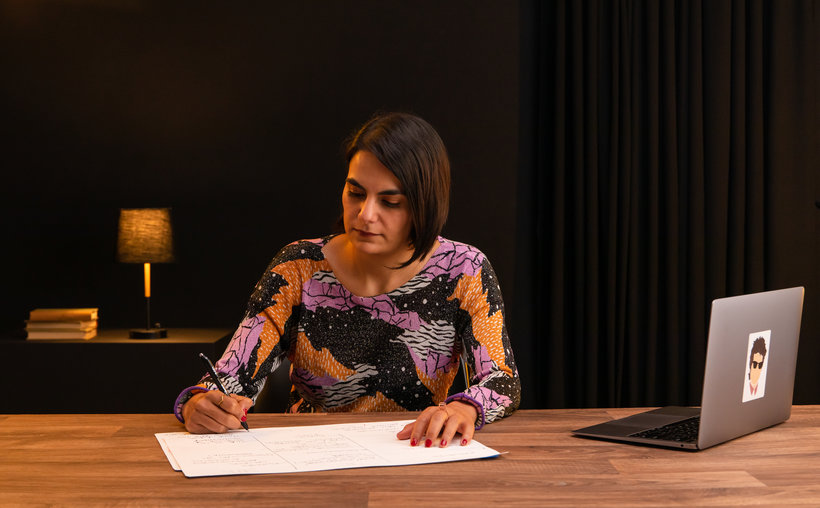
Partial transcription of the video
“Final project First I want to thank you for taking this course. and I want to encourage you that, if you have come this far, play to change your way of thinking and have the question always in front of you before a possible answer. When you are chatting with your friends, family, students or teachers, ask questions and you will see how powerful it is to talk from there. I invite you to listen whatever the other person has to say. Let's not forget that attention is the most valuable thing we have and listening is a radically generous act. Interview the people you think have the questions les...”
This transcript is automatically generated, so it may contain mistakes.
Course summary for: Introduction to Interviewing: The Art of Conversation
-
Category
Marketing & Business, Writing -
Areas
Communication, Content Writing, Copywriting, Creative Writing, Narrative, Non-Fiction Writing, Script, Storytelling, Writing

Elvira Liceaga
A course by Elvira Liceaga
Elvira Liceaga is a broadcast journalist and writer. She currently hosts two cultural radio programs where she invites and interviews guests: Las partículas elementales and the radio supplement for the Revista de la Universidad de México. She is also working on a novel and a collection of essays following the release of her book of short stories Carolina y otras despedidas (Caballo de Troya, 2018).
Throughout her career, Elvira has hosted radio programs in Mexico and New York and interviewed some of her favorite writers like Lydia Davis, Siri Hustvedt, and Selva Almada. She also cowrote and codirected two audio documentaries titled La advertencia, which can be found on any platform, and Mujeres de fuego, which is available on Audible.
- 97% positive reviews (90)
- 3,386 students
- 13 lessons (2h 23m)
- 22 additional resources (2 files)
- Online and at your own pace
- Available on the app
- Audio: Spanish, English
- Spanish · English · Portuguese · German · French · Italian · Polish · Dutch · Turkish · Romanian · Indonesian
- Level: Beginner
- Unlimited access forever
Category
Areas




